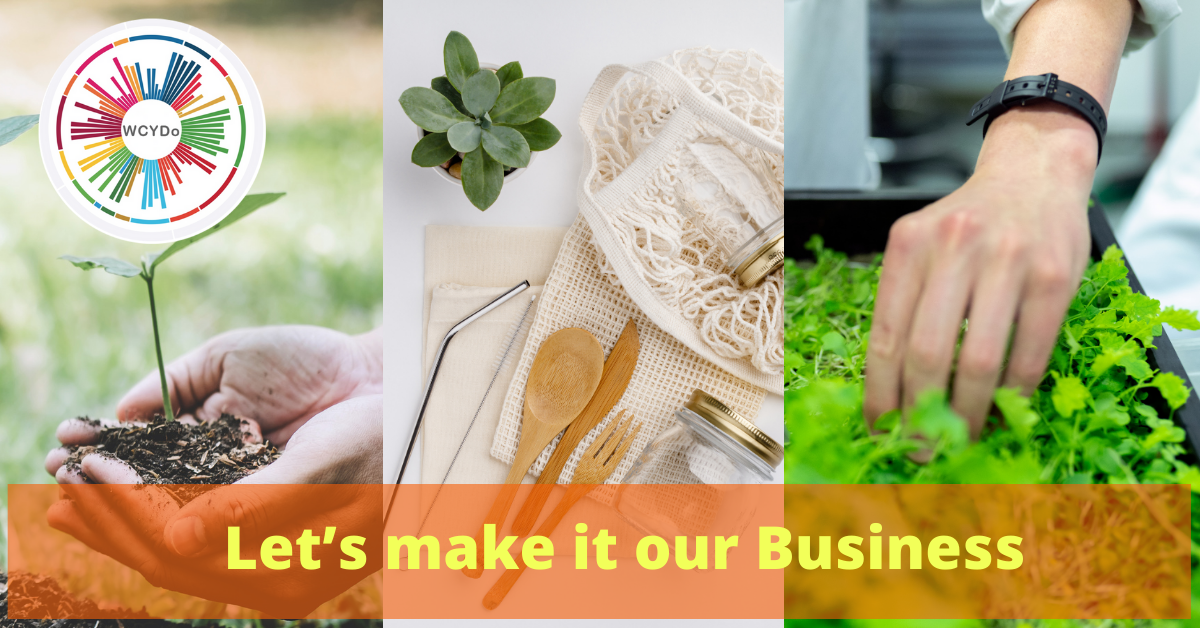Let’s talk about Corporate Sustainability Reports!

Stay with me, I promise, it’s not as boring as it sounds. As someone who takes a lot of consideration over buying sustainable products, in the sense that I’m vegan, I try my hardest to be zero waste and, where I can, I buy second hand. But of course, there are times that it feels that all this conscious decision-making is going unseen if companies and manufacturers continue to churn out single-use plastics, exploit labour costs and pump pollution into our atmosphere.
If you ever feel the same way, then be assured, there is a measure put in place to hold companies accountable for their environmental impact. This measure is called “Corporate Sustainability Reports”, or its shortened acronym – CSR – an increasingly global initiative.
So what are CSR’s? Well, it’s pretty much what it sounds like, it’s when corporate companies produce an annual oversight of how sustainable and planet-friendly they have been throughout the year. Better yet, it’s made public for consumer interest. These cover employment diversity, ‘anti-corruption to water, biodiversity to occupational health and safety, and tax to emissions’. So throughout this blog, I am going to be researching how impactful these reports are and how What Can You Do fits in.
Businesses do CSR in different ways. It could be through taking social initiatives by helping to fund causes in education, homelessness, fair-trade, charity contribution, or perhaps towards ecological projects. Others may focus on decreasing waste and looking to find recyclable, sustainable, and durable materials.
The private companies that have done well in their sustainability reports include Rolex, Disney, Microsoft, Lego, Netflix, Adidas Group, Canon, Sony, and many more. But let’s unpack exactly why they are doing so well. Rolex has a large invested interest in environmental protection, Lego ‘replaced their plastic materials with plant-based plastics from sugarcane’, Microsoft make an active effort to keep their prices competitive and Netflix has been recognised for choosing ethics over profit. When more countries began to require that companies report their sustainability progress, there was a significant boost for employee safety, reduced footprint, and more ethic-based decision making. There is a clear improvement when we look at countries that focus on their social responsibility, ‘those countries improved their ranking by 8 percent relative to countries that lacked mandatory reporting’. So that’s pretty applaudable!
In this reality, massive digital media companies, such as Facebook, Twitter, YouTube, Instagram, Apple, Netflix, and Amazon, have an immense influence over our social lives, economy, information, and lifestyle. It’s more important than ever for us to expect transparency when it comes to their goals and values. When there is transparency, it forces improvement and growth in what’s ‘trendy’; and what’s ‘trendy’ right now is solving climate change, ensuring equality, and reducing waste. Without CSR’s, these powerful companies and their management can be left unbeknown to the average Joe, and therefore less accountable for their actions. Furthermore, the sharing of these results allows customers to pass comment and judgement on the business’ impact and practice, that once again, creates a back and forth conversation between corporation and customer, or in other words, the service and the Planet.

Companies are now expected to publicly acknowledge the relationship between ‘financial and non-financial measures‘ and how that ‘contributes to the long-term profitability of the company.’
In a World where clicking, buying, swiping, liking, and following is an intrinsic part of our culture and will become even more prevalent for future generations, we are at risk of becoming consumer-zombies. But with practices like these, our conscious decisions help us stay awake, giving us, as the customer, a tremendous knock-on effect to a whole bunch of influential players.
Let me tell you who!
As institutional investors seek companies in which to invest, they are going to be looking for a ‘better disclosure of climate risks and sustainability indicators’ as the expectations of clients and beneficiaries become more prevalent. Consequently, Central Banks are forever driving up their awareness of climate-related risks as they aim to maintain a stable financial economy. Even I have noticed that Banks and institutions that help fund projects are now assessing you on your environmental impact as a big factor in your job application. Regulator’s interest in sustainability reporting is also on the rise, and thereby, Corporations themselves.
So…we’re shaking up folks!
But let’s see, are these Corporate Sustainability Reports always effective? Does it lead to more responsible practices or is it just a ploy to make these companies more popular? Some places around the World face challenges when it comes to seeing a real effect from the reporting. These places are usually where there is little or no regulation on labour rights or discussion around the environment. It’s usually in countries which ‘do not tax their enterprises’ so there is ‘no financial value to the stakeholders.’ It brings it down to the fact that for real Planet change we need the whole World to participate.
There is little we can do as consumers to effect this change. All we can do is remain hopeful witnesses as the current more Western enterprises lead the way for more to follow. Some have criticised the reporting system as being ineffective and making change by meaningless metric scales – it just there for the ‘financial, brand and reputation and to contribute significantly to the competitiveness matrix’. However, I would still suggest this is a good thing as it makes the more proactive companies more favourable.

It’s the result that counts!
A regular assessment conducted by GRI and Globescan designed to see how much trust people had in how well companies communicate their sustainability performance involved 1,000 respondents in 27 global markets. ‘The level of trust rose to 51 percent this year, the highest since the survey began in 2003, when it was at 30 percent’. It does mean that pretty much half of those respondents still don’t trust the communications. But the assessment itself proves an awareness, and shared understanding that we are now expecting trust, transparency, goal-orientation and, after all, change.
I believe that with an issue as pressing as the environment, there is always space for more effort and more development in projects such as CSR’s. When we look at the Sustainable Development Goals initiative I would suggest that every company should support at least one goal as a guiding compass for their business strategy. Once the goal has been identified this “goal orientation” is trickled down to the managers and employees of the company to make it part of their daily mindset at work.
Which brings me onto our App!
As always we try to see how our App might play a part, maybe even a crucial role, in sustainability reporting and supporting companies to be more sustainability-conscious. A vision for the App is the ability to create a bespoke version for a particular company based on their own “Company-wide SDG Actions”. Such a bespoke App would tell each employee / customer / investor exactly what measures the company is putting in place and then show how their Community of App Users are contributing towards the Company’s SDG Agenda. Publishing this kind of evidence-based information means your commercial involvement with a particular company becomes more about the conscientious backbone of the business – their environmental outcome if you like rather than just their prices!
Exciting times eh!
Returning to the current App – “shortly to be available in the App Stores” – initial feedback from our Beta Testing has identified the possibility of developing a “personal sustainability score” measuring a User’s commitment to sustainability. This could benefit job seekers, current employees, activist groups, consumers, investors, and the companies themselves. Thanks to the App, the tool of CSR’s will be at our fingertips. Better yet, by choosing a “good” company to buy your product or service from, the App could reward your reduced footprint. For example, let’s say, you went to buy a house, and the company you were buying from offer solar panels, double-glazed, wind-mill, totally eco-friendly house, the App would recognise your conscious decision-making and increase your “personal sustainability score”. The goal is that we’ll be able to do this for each other to encourage us to become more accountable for our decisions.

I believe that with something as pressing as the environment, there is always space for more effort, more development of initiatives such as CSR’s. When we look at the Sustainable Development Goals I would suggest every company should support at least one goal as a guiding compass for their business strategy. Having chosen the compass direction, this would be communicated to the managers and employees, ensuing that when they make decisions at work, it’s also with this chosen goal in mind.
The Business World runs on supply and demand. As consumers, and as individuals, we each hold an equal amount of responsibility for the demand bit.
Have you heard of CSR’s before? If you have, how often do you check them? Do they impact the way you feel about a company, or whether you should use them? Maybe it should.
As powerful individual consumers, perhaps we should take these reports more seriously. If we take them more seriously, it can only lead to corporate companies taking them more seriously. At the end of the day, that consideration is a big step towards securing our future.
For my UK readers, I hope you’re surviving, resting and keeping inspired during this second lockdown. I look forward to sharing more content with you over the following months. Let us know your comments on Facebook (IG: @elizapitkin).
Best
Eliza Pitkin
November 2020
References:
https://youmatter.world/en/top-100-companies-best-csr-reputation2019-28108/
https://hbswk.hbs.edu/item/corporate-sustainability-reporting-its-effective
https://www.greenbiz.com/article/last-corporate-sustainability-reporting-hitting-its-stride
Do you agree? Tell us what you think – email: tellus@whatcanyoudo.earth
“tellus” is a Latin word meaning “Earth” e.g. Tellus Mater the ancient Roman Earth Mother Goddess







